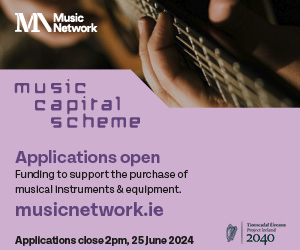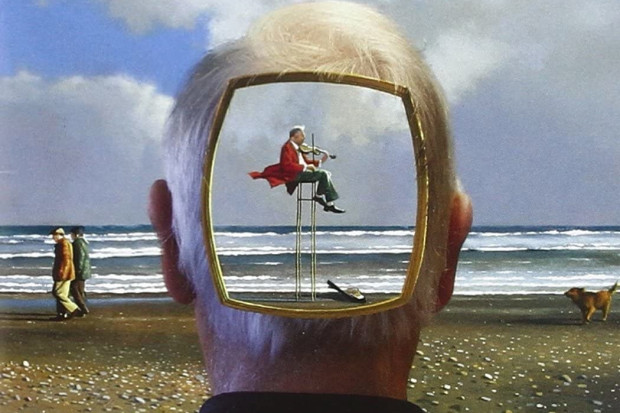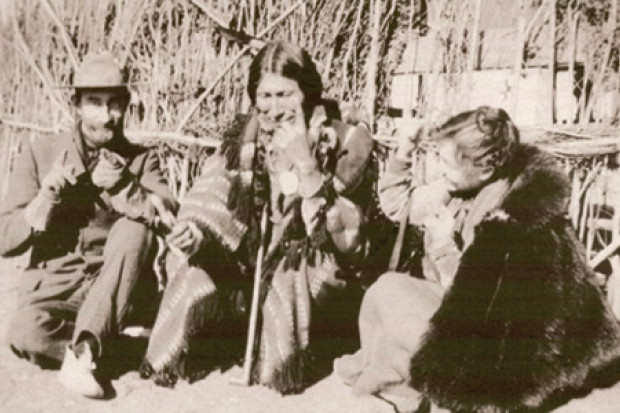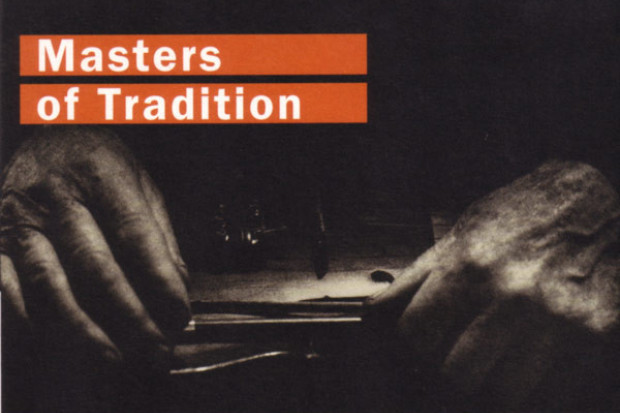Editorial: Crossroads Questions
Ireland in the 1990s. A country in the throes of change and traditional music was demonstrating in musical terms some of the tensions that such a transition creates. Searching albums by young musicians and bands, Riverdance, A River of Sound on television, heated debate in pubs on ‘tradition’, ‘innovation’, ‘change’, and then, excellently timed, a gathering is called in 1996 in the form of the Crossroads conference to discuss ‘Tradition and Change’ and assess developments. Seven years later, we have arrived at the second Crossroads conference, which took place in Derry at the end of April, and which we feature in this issue.
In retrospect, with traditional music debates garnering so much media attention in the mid-1990s, perhaps there was an opportunity then for the art form to say something really important – about Ireland, or music, or both. This, however, didn’t happen, and the reasons have become slightly more clear with time.
There is such a thing as getting off on the right foot in a debate, whereby participants find the framework productive, fruitful – something they can work with and get their teeth into. As parameters for a wider debate on traditional music, the then prevalent notions of ‘tradition’, ‘innovation’ and ‘change’ proved quite fruitless. There was a complicated tension in traditional music in the 1990s which needed to be hammered out, but it was reduced in mainstream media debate to a simple polarity between the old and the new. Many traditional musicians found this frustrating, but struggled to free up the debate from the culture of the soundbite.
Similar to any art form, traditional music can provide a multitude of creative perspectives on our lives, illuminating aspects of our Irishness as well the human condition generally. To consistently narrow its value and significance down to some vague balancing act between the Irish past and present, as the mainstream media does, is to deny its diversity. But it seems that these are the only aspects of traditional music that mainstream cultural debate wants to discuss. In reviews, interviews and articles, if they can’t find a tradition/innovation angle on the music, they don’t want to know.
We should, therefore, view traditional music’s inclusion in cultural debate with an especially critical eye. More often than not, the perspective it supposedly provides is only one very selective aspect of its multi-sided nature.
A recent Irish Times article by Fintan O’Toole (‘Silence, cunning, exile – so what next?’, 3rd March), part of a series on the arts in Ireland, provides some interesting examples of how traditional music is shepherded through cultural debate. For example, O’Toole writes:
Twenty-five years ago, it did not seem insane to think that Irish traditional music, then undergoing a boom, might give birth to a new indigenous modern form, in the way that the blues gave way to jazz. … this hasn’t happened.
To suggest, as O’Toole does, that we should be disappointed or consider it a failure of traditional music that it has not spawned its equivalent of jazz seems to me quite zany, but these are just the kind of myths that are injected into traditional music when it is being conscripted for an entirely different purpose. The compulsion in media commentary in Ireland seems to be that, in order to gain credibility for one’s own political and cultural ambitions for Irish society – which are usually unspecified, but habitually involve kicking over Ireland’s past – one needs to show that traditional music, like every aspect of our culture, is – or should be – hastily casting off its old coat and affirming popular notions of change and tradition. If it doesn’t, this constitutes a flaw, to be responded to with scorn and bafflement.
To take another aspect of the way our public sphere functions, in the same article Fintan O’Toole describes three traditional musicians – Martin Hayes, Iarla Ó Lionáird and Tony MacMahon – as ‘certifiable geniuses’. Musically this is not an outrageous statement, but his choice of artist points up something else at work in the arena of cultural debate and commentary. It strikes me as an interesting coincidence that these are three of the very few traditional musicians who have spoken publicly and in detail about their art. The fact that they are very articulate in describing what they do musically is surely a factor in O’Toole’s selection. If a traditional musician was asked to name some ‘geniuses’ of the genre, though it wouldn’t be surprising if those three were named, one might equally expect to hear the names of, for example, Noel Hill, Mary Bergin, Frankie Gavin or Matt Molloy, and many more. The reasons they don’t appear in O’Toole’s article, of course, is that seldom do any of these musicians explain publicly and in great detail what they are trying to do in their music. For mainstream cultural debate, what you say can be just as important, if not more so, than what you do.
This is a small example of how cultural debate is constructed in Ireland. One’s capacity to create great art is enhanced in the cultural commentator’s eye by the ability to explain satisfactorily what you are doing. For the constructors of our cultural debate, it can not only make your achievement easier to categorise, but it also facilitates them in explaining you to others. And if there is one thing the manufacturers of public opinion like, it is subjects and individuals that they can easily explain. Researchers on programmes need to be able to explain you in a few words to their presenters, feature writers need to be able to knock up copy handy enough for deadlines, columnists need you to occupy a convenient place in their worldview.
In this particular article, O’Toole is selecting examples from the Irish cultural landscape to illustrate his thesis that ‘much of the greatness for which we [the Irish] claim credit has happened in spite of us.’ With regard to traditional music he writes:
Even where there are obvious strengths [he is referring to MacMahon, Ó Lionáird and Hayes], it is by no means clear that the society as a whole, through its formal institutions, can take a great deal of credit for them. Martin Hayes’s sublime fusion of Seattle, where he is based, and Co. Clare, where he comes from, does not, to put it mildly, owe much to Comhaltas Ceoltóirí Éireann.
As it happens, I attended a Martin Hayes concert at the National Concert Hall a couple of months ago and it was, in fact, a benefit concert for the Clontarf Branch of Comhaltas Ceoltóirí Éireann to help them further their dream of building a purpose-built traditional music venue in Dublin. During the concert Hayes shared his memories of entering Comhaltas competitions when he was a teenager and coming up against the traditionally strong Clontarf branch. He also recalled playing in sessions in Dublin which were organised by Comhaltas. These are small examples of the connection, but I doubt that he would have agreed to do the concert unless he felt a debt to CCÉ at some level. This obviously does not fit in with Fintan O’Toole’s particular take on contemporary Ireland, where it would be unthinkable that someone so enlightened as Martin Hayes would have anything to do with such a backward and wrongheaded organisation as Comhaltas Ceoltóirí Éireann!
Those in charge of Ireland’s mainstream cultural debate seem to start with a set worldview and proceed to build the rest of us into it. They do it with a great air of authority – having the backing of a national newspaper or other medium can help – and it is therefore difficult to put your finger on why it usually rings so hollow. I guess the answer lies somewhere in the fact that they are paid to come up with answers, not questions, or at least not questions that they can’t answer, and as the Crossroads conferences have shown, Irish traditional music has plenty of those….
Published on 1 May 2003
Toner Quinn is Editor of the Journal of Music. His new book, What Ireland Can Teach the World About Music, is available here. Toner will be giving a lecture exploring some of the ideas in the book on Saturday 11 May 2024 at 3pm at Farmleigh House in Dublin. For booking, visit https://bit.ly/3x2yCL8.










